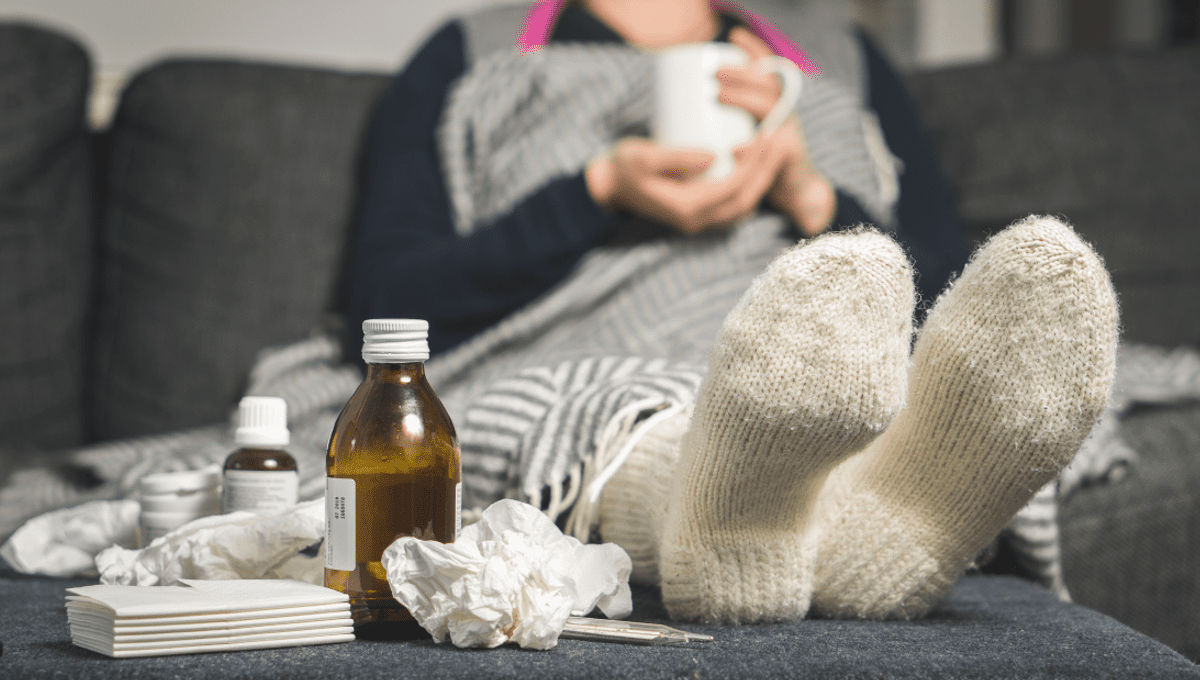
New research has finally pinned down an physiological change that explains why we are so much more prone to certain respiratory infections when the weather is lousy. The discovery is the first biological mechanism to explain why the common cold, flu and COVID-19 see such significant seasonal spikes when the weather is colder in certain regions, and could help us work on better preventative measures.
“Conventionally, it was thought that cold and flu season occurred in cooler months because people are stuck indoors more where airborne viruses could spread more easily,” said Dr Benjamin Bleier, director of Otolaryngology Translational Research at Mass Eye and Ear and senior author of the study, in a statement.
“Our study however points to a biological root cause for the seasonal variation in upper respiratory viral infections we see each year, most recently demonstrated throughout the COVID-19 pandemic.”
Where it goes wrong for us is in the nose, where our body’s first line of defense against invading pathogens sits. When working properly, the detection of a pathogen is the equivalent of kicking a hornet’s nest in the nose’s defense mechanisms, as swarms of extracellular vesicles (EV) are released to capture and attack the invaders.
Studies with human participants have shown that a single coronavirus and two rhinoviruses (the pathogen behind the common cold) can release the EV swarm, though they use different signaling pathways to do so. Busy bees then, these EVs, but they’re not without weakness.
The nasal cavity is exposed to the elements as a result of sticking out of our faces and existing to suck in air, which in the winter can be very cold. New research found that healthy participants exposed to temperatures of 4.4°C (39.9°F) for 15 minutes saw a 5°C drop in temperature inside the nose.
When they used that temperature drop to model nasal tissue’s response to pathogens experimentally, they found that the immune response which released the EVs was hampered. The number of EVs secreted to defend against a detected pathogen dropped by nearly 42 percent, and those that were set loose had impaired antiviral proteins.
“We’ve uncovered a new immune mechanism in the nose that is constantly being bombarded, and have shown what compromises this protection,” added Mansoor Amiji, PhD, Distinguished Professor of Pharmaceutical Sciences at Northeastern.
“The question now changes to, ‘How can we exploit this natural phenomenon and recreate a defensive mechanism in the nose and boost this protection, especially in colder months?’”
The study is published in the Journal of Allergy and Clinical Immunology.
Source Link: Newly Discovered Immune Response Explains Why We Get Sick When It's Cold